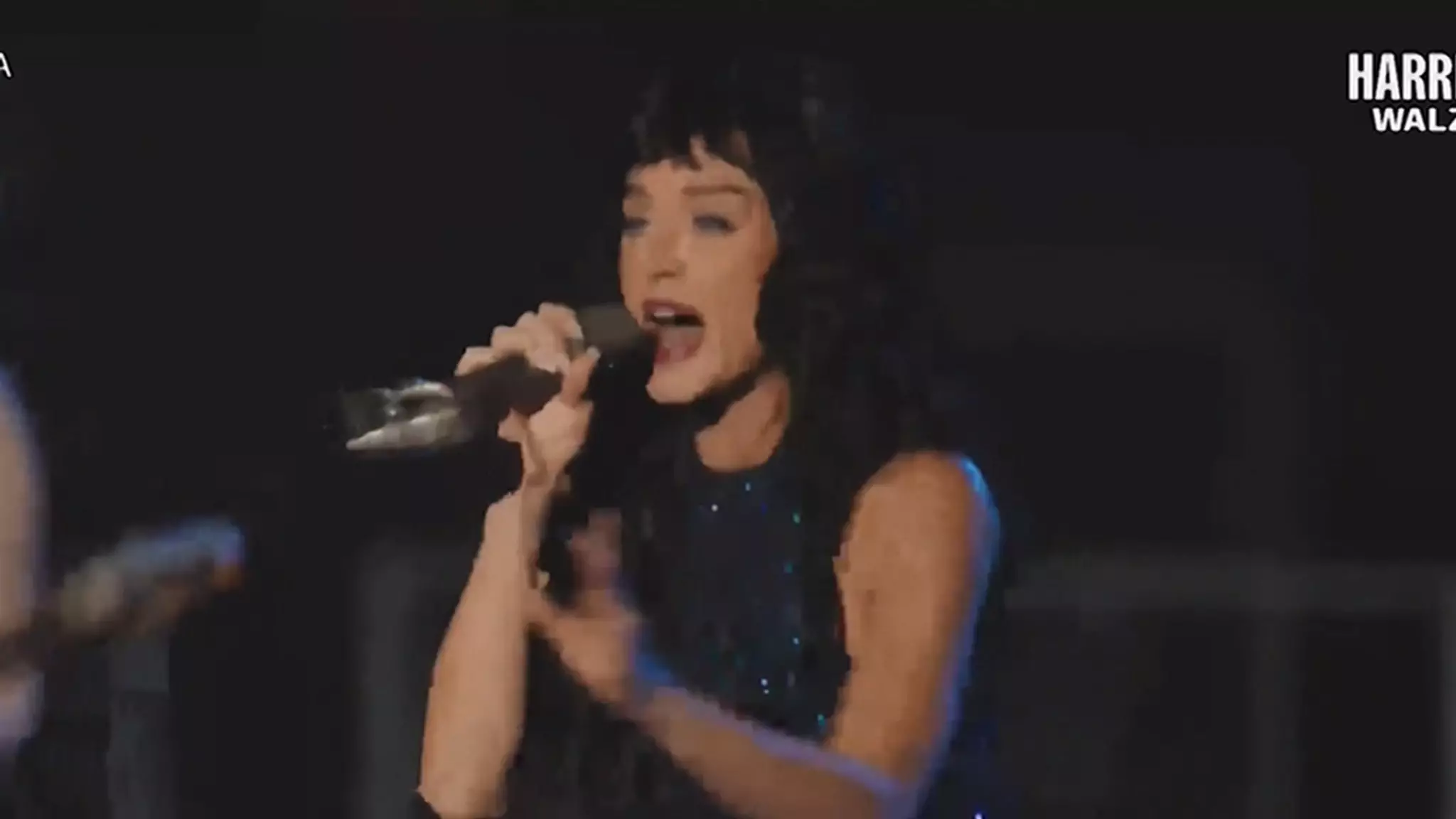In a significant moment for modern political campaigning, pop sensation Katy Perry graced the rally in Pittsburgh for Vice President Kamala Harris, amplifying the cultural crossover between entertainment and politics. Perry’s performance of popular hits, including the powerful anthem “Dark Horse,” served not only to energize the crowd but also to underscore the relevance of celebrity involvement in political narratives. With the election looming, her choice to boldly express pro-choice sentiments by declaring “It’s my body and my choice” amidst her performance highlights the way in which artists leverage their platforms to influence public discourse.
The impact of celebrity endorsements in political races has grown exponentially, especially in recent years. Katy Perry’s rally appearance is a prime example of how entertainment figures can mobilize fans and contribute to a candidate’s visibility. By endorsing Harris back in July and reaffirming her support through live performance, Perry not only demonstrates her commitment to the candidate but also encourages her fanbase to engage politically. This strategy aligns with the broader trend of using entertainment to captivate younger voters, an essential demographic for Democratic campaigns.
Perry was not alone in this effort, as other artists like Lady Gaga and Andra Day joined the political festivities. Gaga’s rally on the iconic “Rocky” steps in Philadelphia further showcased the strategy to unite powerful voices in favor of Harris. The conglomeration of celebrity endorsements across different events creates a multifaceted support system, garnering attention and potentially swaying undecided voters. This collective effort speaks to the importance of collaboration in advocacy, where each artist brings unique influence and reach to the campaign.
As the election approached, the race between Vice President Harris and former President Donald Trump had become increasingly competitive, further intensifying the role celebrities play in shaping public perception. While Trump boasts a cadre of celebrity supporters, Harris’s engagement with the entertainment community may help to counterbalance the narrative. This back-and-forth competition not only reflects the polarization of American politics but also illustrates the evolving landscape where popular culture and political ideology intersect, influencing how citizens perceive their choices at the ballot box.
The intertwining of pop culture and political campaigns as seen in Katy Perry’s rally for Kamala Harris opens up discussions about the future of political engagement. Celebrities have become pivotal figures in modern campaigns, capitalizing on their platforms to amplify issues that resonate with the electorate. As we witness this blend of entertainment and serious political discourse, it is paramount to remain critical of how much sway these figures have in shaping voter sentiment. The influence of music and celebrity culture in politics presents a new dimension to electoral strategies and raises questions about authenticity and the genuine connection between celebrities, their endorsements, and the fundamental values of the campaigns they represent.

